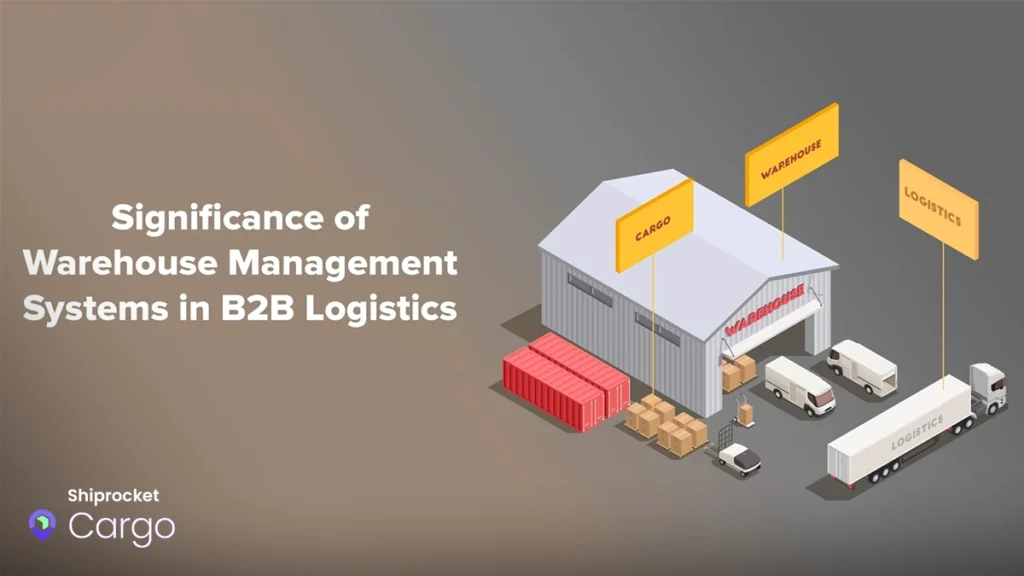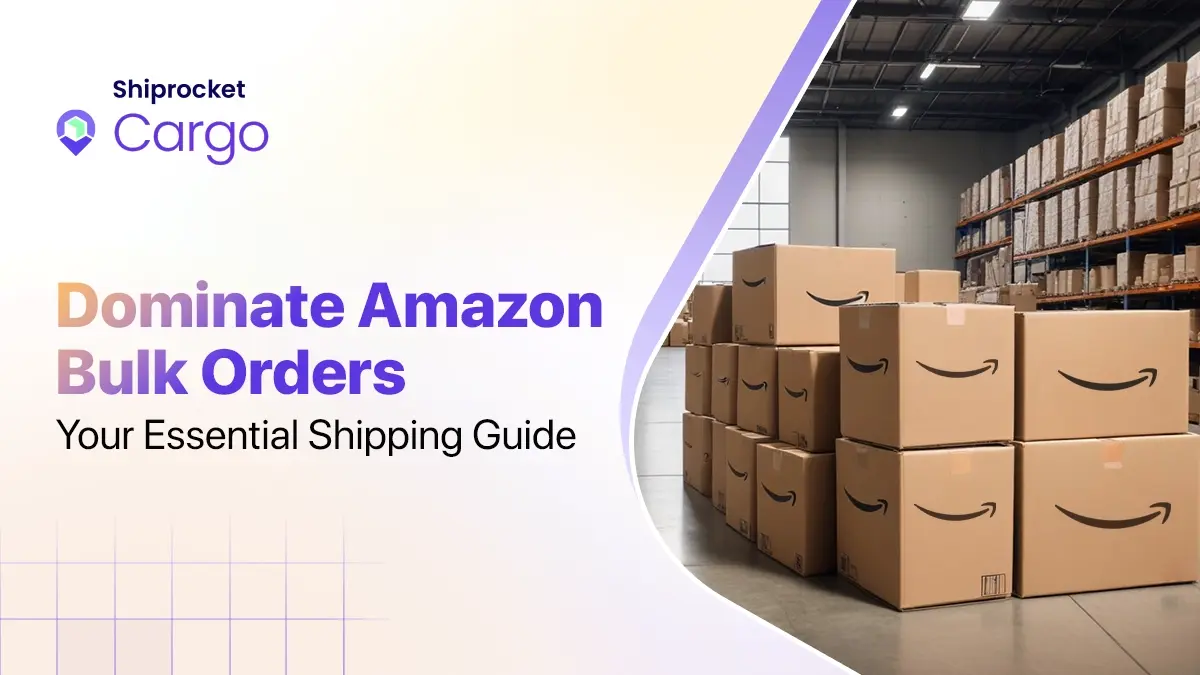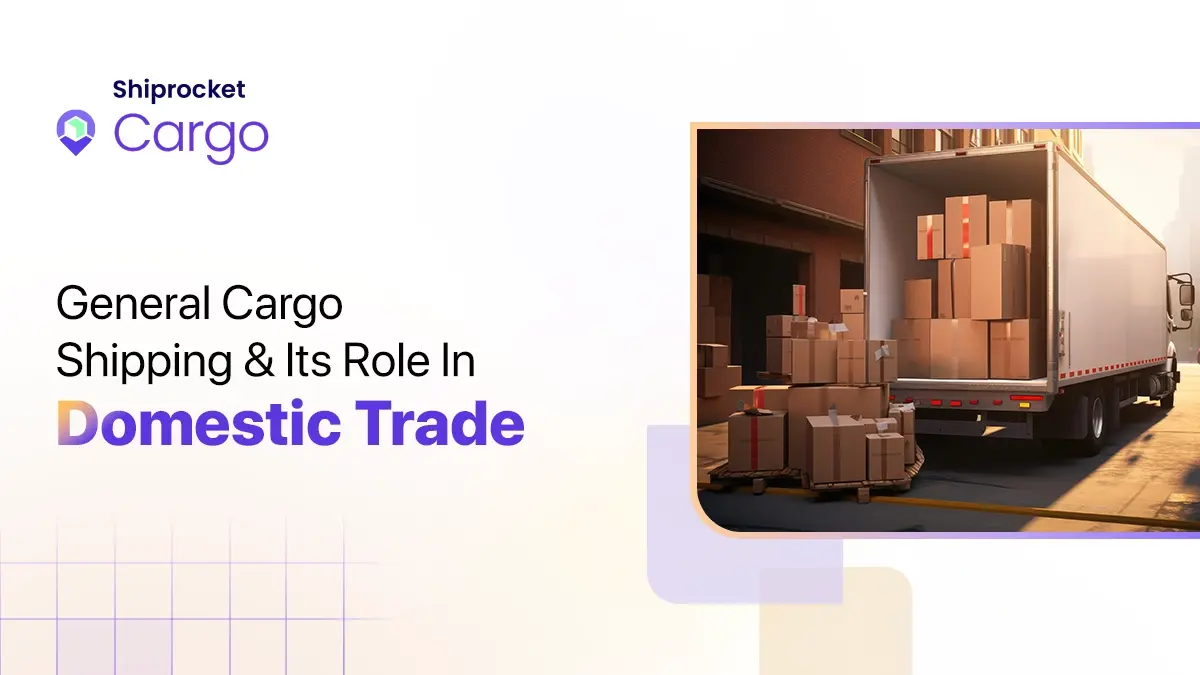Benefits of Warehouse Management System in B2B Logistics

Indian B2B logistics has undergone a significant transformation in the last decade, with technological advancements playing a substantial role in shaping the industry. The Indian government has also played a role in driving change in the logistics industry. Implementing the GST (Goods and Services Tax) in 2017 was a significant step toward simplifying and streamlining the tax system. It has made it easier for businesses to move goods across state borders. Additionally, the government’s “Make in India” initiative has increased manufacturing activity in the country, further boosting the logistics sector.
In recent years, there has been a growing trend toward automation in logistics. With robotics, drones, and other technologies, businesses can improve efficiency, reduce costs, and increase the speed of delivery.
In addition, Indian logistics companies are also focusing on sustainability and reducing their carbon footprint. This includes the use of more fuel-efficient vehicles, the adoption of greener packaging materials, and the implementation of recycling and waste management programs.
What is a Warehouse Management System, and How Does It Work?
Warehouse Management Systems (WMS) are software applications that help companies manage their warehouse operations. These systems are designed to automate and optimize the various tasks involved in a warehouse, including inventory management, order fulfillment, and shipping.
Inventory management is a critical component of WMS. The system helps companies track their inventory levels, including the location of products within the warehouse, the quantity of each item on hand, and the status of orders. This information is used to plan and schedule inventory replenishment and ensure that products are available to fulfill customer orders.
Order fulfillment is another essential function of WMS. The system helps companies manage receiving, processing, and shipping customer orders. This includes tracking the status of orders, allocating products from inventory to fulfill orders, and generating shipping labels and other documentation.
Since the definition of a warehouse management system is clear, let’s look at the challenges B2B logistics faces due to the lack of an optimum warehouse management system.
Challenges Faced by B2B Companies Due to Lack of a Warehouse Management System
Warehouse management systems (WMS) are crucial for businesses that operate in the B2B space. Without a proper WMS, companies can face various challenges that can negatively impact their operations, efficiency, and bottom line.
One of the biggest challenges faced by B2B companies without a warehouse management system is the need for real-time visibility into inventory levels. Without a WMS, it can be not easy to know exactly how much of a particular product is on hand, leading to stockouts or overstocking. This can result in lost sales and wasted resources.
Another challenge is the need for more efficiency in the warehouse. Without a WMS, companies may rely on manual processes, such as paper-based inventory tracking, which can lead to errors and delays. This can also result in increased labor costs and reduced productivity.
In addition, without a WMS, B2B companies may struggle to manage their supply chain effectively. This can lead to poor supplier relationships, late deliveries, and increased costs.
Looking for an optimum warehouse management system? Sign up to get the best WMS for your B2B business
Benefits of Warehouse Management System in B2B Logistics
Warehouse management plays a critical role in the logistics process for businesses that operate in a B2B (business-to-business) environment. It involves the efficient and effective flow of goods from the origin to the point of consumption to meet customer demand.
Let’s look at the benefits of warehouse management systems for B2B logistics:
Cost Effective
One of the main benefits of effective warehouse management is cost savings. Businesses can reduce their overall expenses by streamlining processes and utilizing space and resources efficiently. This can include reducing labor costs, minimizing inventory carrying costs, and reducing the need for additional warehouse space.
Improved Inventory Management
Another critical benefit of warehouse management is improved inventory control. By implementing proper inventory management techniques, businesses can ensure that they have the right products, in the right quantities, at the right time. This can help to reduce stockouts and overstocking, which can negatively impact customer satisfaction and lead to lost sales.
Enhanced Supply Chain Visibility
Effective warehouse management also enables businesses to improve their overall supply chain visibility. By having real-time visibility into inventory levels, businesses can make more informed decisions about production and ordering. This can lead to faster turnaround times and improved responsiveness to customer demand.
Improved Overall Efficiency
In addition to these benefits, effective warehouse management can help businesses improve their operational efficiency. By automating processes and utilizing technology, businesses can reduce the need for manual labor and minimize errors. This can lead to faster turnaround times and improved accuracy in the logistics process.
Conclusion
In summary, warehouse management is a vital component of B2B logistics. It helps businesses improve efficiency, reduce costs, and increase customer satisfaction. Businesses can streamline their operations and improve their bottom line by implementing a warehouse management system and optimizing the storage and movement of goods within a warehouse.
To know more about our warehouse management system, connect with us.



